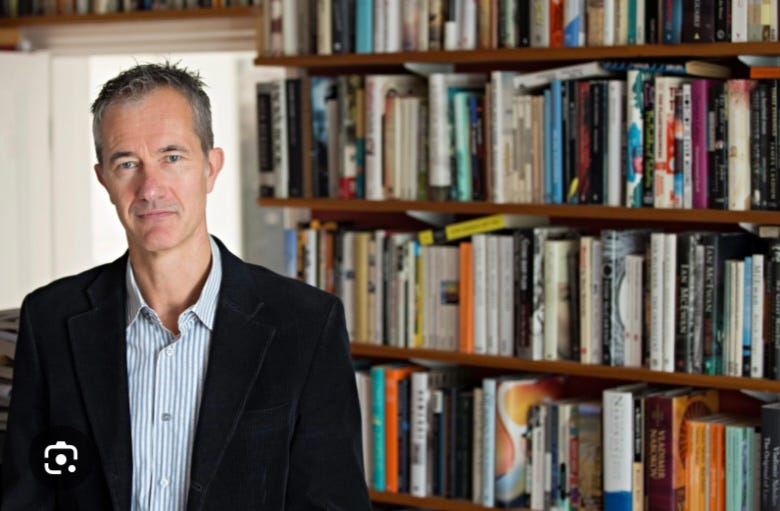Those familiar with Geoff Dyer’s idiosyncratic, stimulating style of writing will know that he has turned his hand to myriad subjects - photography, the Tarkovsky film Stalker, the First World War, John Berger, living on the aircraft carrier the George HW Bush, writing about a subject he knows little (Dyer has said that he enjoys this since he learns about the subject while he is writing, and I believe he gave the example of his book on jazz), not writing about a subject he knows well (D.H. Lawrence: the resulting book is Out of Sheer Rage), jazz, semi fictional accounts of being at the Venice Art Biennale and travelling in India, endings, novels, and more.)
One feature of his work is his openness about his own life. Dyer is often disarmingly honest, whether he’s talking about why he loves having sex in hotels or admitting to spending several years reading and going to gigs when on the dole after university.
Those of us who have hungrily gorged on his output will already know a fair bit about his childhood, but pleasingly, Dyer has now dedicated a whole book to that time. Homework is as unflinching as you would expect. It’s also poignant and hilarious.
Dyer was an only child born to working class parents in Cheltenham. His father and mother were close to their siblings who were familiar figures throughout Dyer’s childhood. His father worked at Gloster (sic) Aircraft Company before being made redundant. With the typical pride and unwillingness to sponge of the old working class, he found another job - with British Nylon Spinners - within hours. Dyer’s mother was a school dinner lady and then a cleaner but she had dreamt of being a seamstress, and made all the jumpers Dyer and his father wore when Dyer was a child. The story of why she didn’t follow her ambition to become a professional seamstress is one of the few sad seams (appropriately enough) running through the book: she had low self-esteem.
We learn about Dyer’s life as a small boy, when he had a passion for putting together models of aircraft and collecting the numerous sets of picture cards that were on offer in 1960s Britain. It seems that his parents spared no expense in buying him what made him happy. It’s this generosity and utter devotion to their only child that gave me a pang of pain every time Dyer mentions his father’s famous miserliness, even though I laughed as well.
The lanes around the Dyers’ first home were perfect for small boys re-enacting war scenes: Dyer was born in 1958, so survivors of both wars were plentiful, and their stories coloured his childhood. His father had fought in India, and yet his interest in the country never stretched to reading about it. His mother would regale her husband and son with stories framed by habit in repetitive idiom: “She did X, didn’t she?” Dyer Sr brought home an array of freebie goodies from work, which were of course, not freebies at all, but petty theft justified by his low wages/exploitation by managers.
I laughed out loud every few pages at the characteristic Dyer wit. Much of this is due to the uncensored relating of childhood misdemeanours. There is the story of his friend Keith’s mother having a breakdown.
Dyer asks his parents “Is Keith’s mum mental?”
The reply comes back from his mother: “ No, and you mustn’t say that.”
“ What’s wrong with her then?”
“She’s just a bit soft in the head.”
“Does that mean she’s mental?”
And so on. A few pages on, Dyer is told he mustn’t mock the afflicted.
He remembers this the next day when the other boys at school round on Keith, jeering at him about his ‘mental’ mum.
“You mustn’t mock the inflicted”, Dyer says, before joining in the bullying with gusto.

